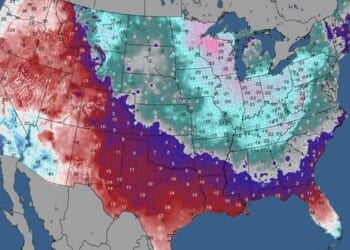We throw rocks in the stream, hoping to move the flow to a better channel. That’s one metaphor for what we do in public policy analysis and commentary. I have some boulders for you, Wyoming, and a shiny stone you might find attractive.
The world of digital form-factor US dollars is not divided between private stablecoins and central bank digital currency. In 2023, the Wyoming Stable Token Act positioned that state to be a stablecoin issuer. The GENIUS Act does not regulate such a stablecoin because a state is not a “person” as defined in the federal statute. Wyoming need not conduct the comprehensive surveillance GENIUS foolishly requires of most stablecoins. (The technical implementation will tell whether it is actually privacy protective.)

Alas, Wyoming may use its role as an independent sovereign to make a different policy mistake: comprehensive, centralized capacity to seize stablecoins. Under pending regulations, your ownership of a Frontier Stable Token (FRNT) would be contingent on the good graces, administrative regularity, and discretion of the Wyoming Stable Token Commission. That’s not the best ownership the world has ever seen.
The regulations have two sections devoted to seizing stablecoins. One, temporary seizure, it calls “freezing.” The commission can freeze stablecoins if ordered by a court, if the commission “confirms” that an FRNT token is interacting with a person subject to federal sanctions, or if the commission believes a token is being used illegally.
You can kind of watch your due process rights riding off into the sunset as you go down that short list. Under the Fourth Amendment and state analogs, only court orders or well-defined exigencies are proper bases for government seizure of someone’s property.
I’ll flesh out the “freeze versus seizure” semantic squabble: Seizing something for a short period is still a seizure. That conclusion I derive from the US Supreme Court case in which a motorist who had gotten a traffic ticket was separately seized—requiring reasonable suspicion of criminal activity—when police extended the traffic stop to search him with a drug-sniffing dog. Time-limited seizures are seizures, not “freezures.”
The Wyoming regulations allow seizures (meaning permanent seizures) if ordered to seize by a “judicial, administrative, or regulatory body.”
See the due process problem there? Judicial. Only judicial. And the party from whom property is being seized must have the opportunity to participate in the case. The proposed regulations invite the commission to “analyze the relevant information” in a seizure order “to determine if additional action is required.” That open-ended authority invites creative malfeasance.
All this seizing is not required by Wyoming’s authorizing legislation. And the use of these seizure powers would conflict with state and federal constitutional law—if this token is meant to be property that people can own. Wyoming law says it is.
There is other constitutional law that is interesting and shiny: States are independent sovereigns. The Constitution bars the federal government from regulating states—from commandeering them into the service of federal regulatory purposes. So none of the surveillance or seizure capabilities federal statute or regulators might want in a stablecoin are required of Wyoming. It is at liberty to issue a freedom coin, something more consistent with American values than what we have seen so far.
As a laboratory of democracy, Wyoming could be the state that issues stablecoins with true ownership qualities—not subject to centralized seizure and not natively surveilled. Wyoming could produce a digital form-factor dollar that is truly yours and that serves your privacy interests as paper dollars do.
Would a truly privacy-protective stablecoin really be a good idea, though? A system for transmitting unlimited funds instantly around the world could well be “a bacchanal of crime and threats to global security.”
That quote is me from my forthcoming law review article, “A Law Enforcement Paradigm for the New Form of Money.” There is a way, I believe, to do law enforcement and security on global crypto networks that is consistent with our Constitution—that is, without comprehensive surveillance. Law enforcement agencies could query digital transactors for investigative purposes, eliciting assistance globally the way police ask for information at crime scenes and in neighborhoods. I commend it to Wyoming and all those interested in Wyoming’s stablecoin project.
What a delight that our federal system might make room for policy experimentation that leads away from global financial surveillance. It awaits Wyoming finding its way back from global financial seizure, as it might thanks to the Wyoming legislature’s oversight.
So there you have it. A few boulders in front of Wyoming’s stablecoin, and a shiny rock to help draw it in a different direction. My hope is that throwing them into the mix opens a better path of least resistance.
The post Will Wyoming Be the Token Seizure State? appeared first on American Enterprise Institute – AEI.











